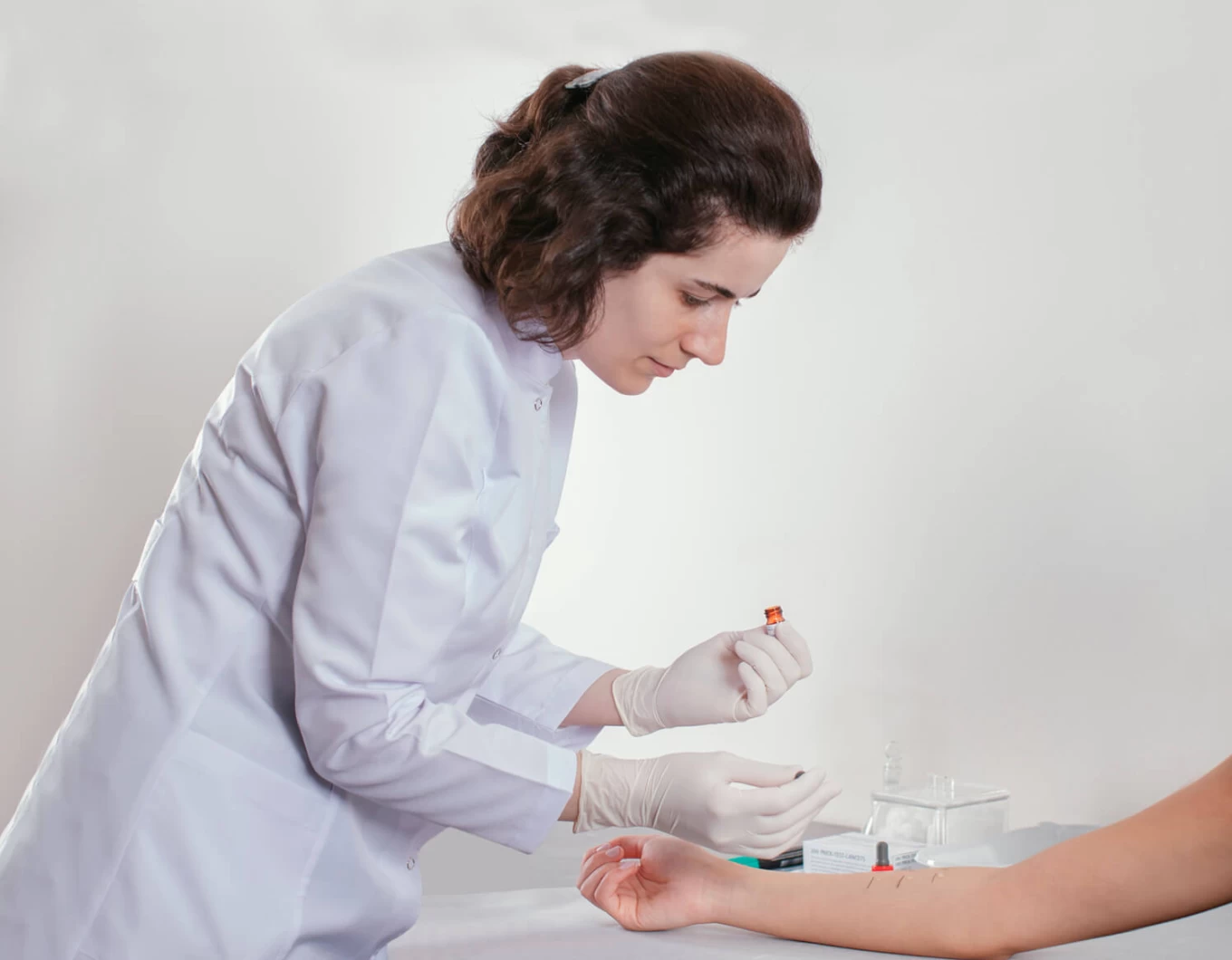Allergology - Allergology Center
Department of Allergology
Allergy is an exaggerated immune system response to substances that are usually harmless to the majority of the population. The allergens that trigger allergies may include household, animal, plant-based, food-related, medicinal, and other substances.
A growing trend of allergic diseases is observed worldwide. The diagnostic process for allergy-causing agents is carried out using the Allergopharma test set K. Additionally, laboratory tests are conducted with the ImmunoCap tests on the new-generation analyzer, Phadia 100. This includes determining increased sensitivity to medications through skin testing and conducting immunotherapy procedures.
What is Allergology?
Allergology is a medical specialty focused on the diagnosis, management, and treatment of allergies and immune disorders. Allergology examines how the immune system responds to various substances and the allergic reactions it triggers.
Allergic reactions occur when the immune system mistakenly perceives harmless substances, known as allergens, as threats to the body. Common allergens include pollen, pet dander, certain foods, medications, and more. When an allergic person comes into contact with an allergen, their immune system produces specific antibodies called Immunoglobulin E (IgE). These antibodies trigger the release of chemicals such as histamine, which in turn cause allergy-related symptoms, including itching, sneezing, hives, breathing difficulties, and more.
An allergist is a medical specialist who specializes in identifying and diagnosing allergies and immune disorders. The allergist evaluates the patient’s medical history, conducts examinations, and orders tests to identify the specific allergens causing the patient’s symptoms.
Based on the diagnosis, allergists develop personalized treatment plans for patients. Treatment options may include allergen avoidance strategies, medication management, and more.
Allergology also encompasses the study and treatment of other immune system disorders, including autoimmune diseases, immunodeficiencies, and hypersensitivity reactions. Allergists work closely with other healthcare specialties, including dermatology, pulmonology, and pediatrics, to provide the best care for patients.
At Todua Clinic, you will be greeted by a team of professionals led by the experienced allergist Tamar Barbashvili. Allergology at Todua Clinic is provided at the highest level, with the department equipped with the latest technologies necessary for disease identification and subsequent treatment.
Todua Clinic manages and treats various allergic diseases, including:
- Allergic Rhinitis
- Bronchial Asthma
- Urticaria (Hives)
- Angioedema (Quincke’s Edema)
- Atopic Dermatitis
- Drug Allergies
- Food Allergies
- Medication Allergies
- Insect Sting and Sun Allergies
Symptoms
The symptoms listed below suggest the need for allergological evaluation:
- Sneezing, nasal congestion, and itching, watery nasal discharge
- Red, itchy eyes, tearing
- Wheezing, chest tightness, difficulty breathing, coughing
- Swelling of the lips, tongue, eyelids, or face
- Abdominal pain, nausea, vomiting, or diarrhea
- Dry, cracked, red skin with itching
In patients with respiratory allergic symptoms, certain diagnoses require tests such as spirometry and the determination of exhaled nitric oxide.
Todua Clinic is equipped with modern devices such as MicroLab Mk8 and NObreath, which allow you to perform the aforementioned tests.


